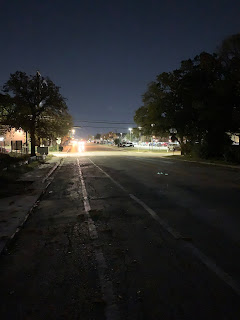Wow thanksgiving break already?!!! There are two weeks? Maybe three weeks left in this semester?? WHEW I can't even keep up anymore!!!!! I have been counting down with my students this whole semester. I would start my housekeeping by saying, "Good morning y'all!!!! How are y'all today? (Because mental health checks are so important to me!!!). WELCOME TO WEEK 8!!!!!!". I remember celebrating that milestone and making sure that they celebrated themselves for making it so far. It's interesting being a teaching assistant for the first time and realizing that the students you teach are only "yours" for sixteen weeks and poof.... they are no longer in your life. What impact did I leave them? I am hoping that I left my students with an expanding critique to life. I praised my gentleman for sticking with the women in the room for being on our side during these crazy weird controlling times over our body and reproduction. I truly gave them their flowers and always ensured to leave them with an open space to be emotional. I hope that my gentleman heard me loud and clear when I told them that it is okay for men to cry.They are trained to deal with so many emotions internally, to the point in the long run where they become numb and numb emotions can create great dangers to them as well as other individuals. To my ladies, I had to REPRESENT because I am a woman first, everything second.
According to Elizabeth Bell and Golombisky, women face a jeopardy when they are in the classroom. Women are often caught between voice and silence when it comes topics such as race and privilege. This causes women to move in "strategic ways" often making them choose the route of silence than voicing their thoughts, opinions and yes even their questions. My women of color face a double jeopardy as they have to play the classroom in an even more "strategic" manor. They are at a double jeopardy due to the fact that they are stereotyped as "loud, ghetto, and bitches" whenever they have a smart, eloquent, bold answer.
I made sure to protect my ladies in my classroom. I made sure to grade each student according to their knowledge and their efforts. Not because of their skin tone nor the stereotypes that accompany it. We really as educators, must give every student a fair chance! #DIVERSIFYIT. That fair chance can be given simply by grading the content that is presented in front of you. Knowing how much effort students put in are so important because that is the true journey of academia. It is a climb.
My climb has been rough. I myself have been a good girl within the classroom, strategically thinking about what I want to say and how I am going to say it, It is quiete exhausting, but those where the cards I was dealt with and power lies within that. I truly hope I used my power to create an inclusive classroom (COMMUNITY) this semester. I will cherish my students for allowing me, my Mexican first generation college graduate student, teach them by being the real me, the advisor me, the mentor me, the TEACHER ME, the rough patched me, the tired me, the NOT SO GOOD GIRL ME, the teacher who teaches with her heart me, all of me. I will never forget them, and I really hope they never forget me. Cheers to good teaching, and being the change you want to see in this world Cyn!!!!
Source:
Bell, E., & Golombisky, K. (2004). Voices and silences in our classrooms: Strategies for mapping trails among sex/gender, race, and class. Women's Studies in Communication, 27(3), 294–329. https://doi.org/10.1080/07491409.2004.10162478










